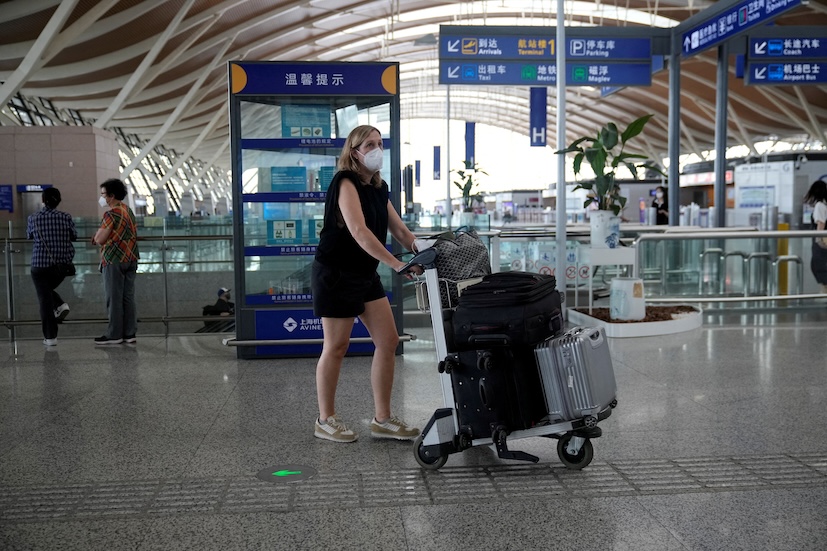I first came to China in 2007.
I’ve spoken to thousands of students in China through my company China Admissions.
Here are the main ways I’ve seen China has changed.
-
COVID restrictions
- China had a series of strict lockdowns and restrictions between 2020 and 2023, starting with Wuhan in 2020, and then in Shanghai in 2022. The border opened finally in January 2023.
- I would say that this can be marked into two stages, from my own experience, and of students in the market and sentiment about studying in China. The first stage – 2020 to 2021, the lockdown seemed to be beneficial in 2020 and 2021. COVID and the confusion that happened in other countries didn’t exist in China.
- However in 2022 it became increasingly challenging while the rest of the world opened up.
- I think all countries had challenges when dealing with COVID. It was a challenging time around the world. Other countries dealt with it in different ways. It seems that some smaller and younger countries such as UAE seemed to manage it well and benefited from it.
- Now there are no restrictions and it’s open.
-
Fewer foreigners.
- It seems like people commenting about this topic China are mostly European and North American and mostly living in Shanghai. I think that this group has decreased more and changed differently to the overall market. I will try to share more from my perspective and what I’ve seen.
- The number of foreigners has decreased in recent years. There are students and there are people who work in China.
- Students:
- For students there are no publicly released figures. So we can only tell from a sample size. I think students were at 492,000 in 2019, and then they decreased in 2020-2022 to about 5-10% (30,000 – 40,000).
- The reasons the number of students fell is because:
- There were many students who were not in China in the first year because the outbreak happened during spring festival.
- Scholarship students who were outside China were not able to receive scholarships so they started working.
- The border closed and they couldn’t come back.
- No new students could come to China. The new pipeline was cut. The average stay of students in China was roughly 2 years, with those coming for 6 months.
- Now it seems that the number of students in China has risen with a new batch of new students coming in 2023. This is still smaller than pre-covid batches, partly because the border opened in the middle of the application period, and it takes students about 8 months to make a decision about studying in China. From a sample size, it seems there are about 25-30% of those in 2019, so I would estimate about 100,000 – 150,000.
- One of the main changes I’ve noticed is the type of students seems to be different.
Before COVID there were about 75% from Asia, including Korea, and a portion from Europe and North America (although this seems to be the loudest group that you might have read about). The type of students have been changing. There seems to be less from Europe and North America, and fewer of them going to Shanghai. There seems to be more from developing countries and “belt and road countries”, including South East Asia and Russia. South East Asia has a lot of culturally Chinese or third generation Chinese. They have also been going more to second and third tier cities. Moroccan big group, Russian. I think you don’t hear about those groups as much because English isn’t their first language. - Workers. I can only share from my network and what I’ve seen. This has been decreasing with a big exodus overall and also from Shanghai.
- Western expats are always leaving China. Before COVID, expats leave on average every 2-3 years. So it’s logical that when the border has closed for 3 years, then a big portion of expats would have left.
- I think it especially hit foreigners because they have global ties and so want to be able to visit family worldwide and they are living in a new country.
- The difference is that there have been very few new expats coming in looking for work.
- This has been impacted by the pipeline of new students who are usually graduating and looking for work.
- Also the pipeline of people who are visiting China for short business trips have been
- It’s challenging for foreigners in China – because it’s a big market, and cultural difference. What advantage do you have Vs 1.3 billion Chinese people who are better in Chinese, can speak great English, and they understand the market? It’s the global market.
- Despite this I do think that there are big opportunities for foreigners in China, because the numbers are small, and it’s the number 2 economy in the world. You can find a lot of opportunities and you can be valuable there, especially if you can speak Chinese.
- There is not balanced information and information about the job market in China.
- I expect that the number is going to continue to grow, depending on policies to attract people.
-
Lower cost
- The cost of living in China is actually quite affordable compared to other countries.
- The cost of living in Shanghai is cheaper than other countries and rents have actually been falling by 25% compared to before COVID.
- You can live for a low cost in China compared to other countries such as London, or Paris.
Any questions let me know in the comments
